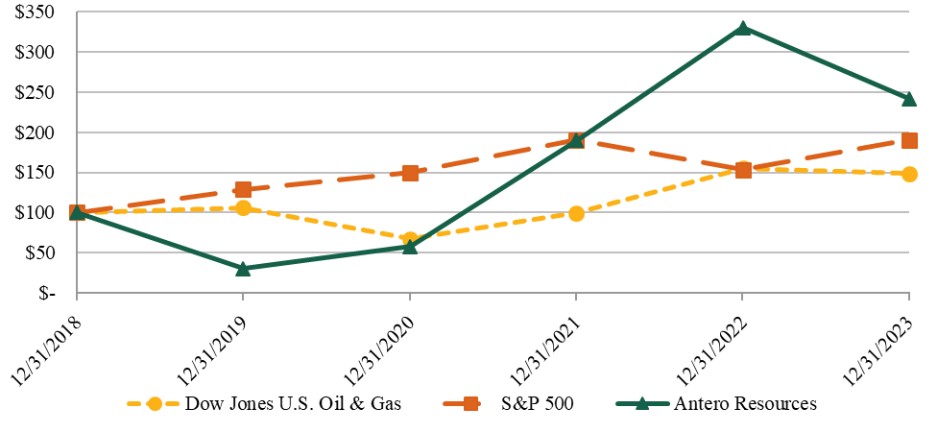are not limited to, ransomware, credential stuffing, spear phishing, social engineering, use of deepfakes (e.g., highly realistic synthetic media generated by artificial intelligence) and other attempts to gain unauthorized access to data for purposes of extortion or other malfeasance.
Our information and operational technologies, systems and networks, and those of our vendors, suppliers, customers and other business partners, may become the target of cyberattacks or information security breaches that result in the unauthorized release, gathering, monitoring, misuse, loss or destruction of proprietary and other information, or adversely disrupt our business operations. Although we have written policies and procedures for monitoring cybersecurity risk and identifying and reporting incidents, there can be no guarantee they will be effective at preventing cyberattacks or ensuring incidents are timely identified or reported. Advances in computer capabilities, discoveries in the field of artificial intelligence, cryptography, or other developments may result in a compromise or breach of the technology we use to safeguard confidential, personal or other information. As cyberattacks continue to evolve, we may be required to expend significant additional resources to continue to modify or enhance our protective measures or to investigate and remediate any vulnerabilities to cyberattacks. In particular, our implementation of various procedures and controls to monitor and mitigate security threats and to increase security for our personnel, information, facilities and infrastructure may result in increased capital and operating costs. A cyberattack or security breach could result in liability resulting from data privacy or cybersecurity claims, liability under data privacy laws, regulatory penalties, damage to our reputation, long-lasting loss of confidence in us, or additional costs for remediation and modification or enhancement of our information systems to prevent future occurrences, all of which could have a material and adverse effect on our business, financial condition or results of operations. To date, we have not experienced any material losses relating to cyberattacks; however, there can be no assurance that we will not suffer such losses in the future. No security measure is infallible. Consequently, it is possible that any of these occurrences, or a combination of them, could have a material adverse effect on our business, financial condition and results of operations.
Our producing properties are concentrated in the Appalachian Basin, making us vulnerable to risks associated with operating in one major geographic area.
Our producing properties are geographically concentrated in the Appalachian Basin in West Virginia and Ohio. As of December 31, 2023, all of our total estimated proved reserves were attributable to properties located in this area. As a result of this concentration, we may be disproportionately exposed to the impact of regional supply and demand factors, delays or interruptions of production from wells in this area caused by, and costs associated with, governmental regulation, state and local political activities, processing or transportation capacity constraints, market limitations, availability of equipment and personnel, water shortages or other drought related conditions or interruption of the processing or transportation of natural gas, NGLs or oil.
In addition, a number of areas within the Appalachian Basin have historically been subject to mining operations. For example, third parties may engage in subsurface coal and other mining operations near or under our properties, which could cause subsidence or other damage to our properties, adversely impact our drilling operations or adversely impact third-party midstream activities on which we rely. In such event, our operations may be impaired or interrupted, and we may not be able to recover the costs incurred as a result of temporary shut-ins or the plugging and abandonment of any of our wells. Furthermore, the existence of mining operations near our properties could require coordination to avoid adverse impacts as a result of drilling and mining in close proximity. These restrictions on our operations, and any similar restrictions, could cause delays or interruptions or prevent us from executing our business strategy, which could materially adversely affect our results of operations and financial position.
Due to the concentrated nature of our portfolio of properties, a number of our properties could experience any of the same conditions at the same time, resulting in a relatively greater impact on our results of operations than they might have on other companies that have a more diversified portfolio of properties.
Negative public perception regarding us and/or our industry could have an adverse effect on our operations.
Opposition toward oil and natural gas drilling and development activities generally has been growing globally and is particularly pronounced in the U.S., and companies in our industry are often the target of activist efforts from both individuals and non-governmental organizations regarding safety, human rights, environmental matters, sustainability and business practices. Negative public perception regarding us and/or our industry may lead to increased litigation and regulatory, legislative and judicial scrutiny, which may, in turn, lead to new local, state and federal laws, regulations, guidelines and enforcement interpretations in safety, environmental, royalty and surface use areas. These actions may cause operational delays or restrictions, increased operating costs, additional regulatory burdens and increased risk of litigation. Moreover, governmental authorities exercise considerable discretion in the timing and scope of permit issuance and the public may engage in the permitting process, including through intervention in the courts. Negative public perception could cause the permits we need to conduct our operations to be withheld, delayed, challenged or burdened by requirements that restrict our ability to profitably conduct our business. In addition, anti-development activists are working to, among other things, reduce access to federal and state government lands and delay or cancel certain operations, such as drilling and development. If activism against oil and natural gas exploration and development persists or increases, there could be a material adverse effect on our business, financial condition and results of operations.
